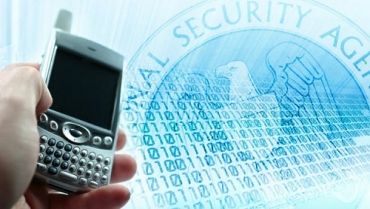Cell phone tracking has become a major concern for the public and policy makers in the US. Recently two cases brought up in the Supreme Court posed a valuable question about how much authority does the police officials have when it comes to tracking cell phones in order to follow suspects. The court has passed ruling on a 2012 case related to GPS tracking of suspects and 2014 case related to searches using people’s cell phone records. The entire scene has caused confusion which needs to be clarified.
Taking a look at the 2012 case, when the police had mounted a GPS system on a car which allegedly belonged to a drug dealer, it was decided that the police had violated the protection given by the Fourth Amendment regarding “unreasonable search and seizures” by the Court with a majority of 9-0. The use of the warrant that was initially obtained by the police to use the GPS tracker expired but GPS was installed anyway. Even though the Court found the act illegal, government defended by saying there was no need of a warrant in the first place.
Jones, who is known to have taken the decision to mount the GPS, had personally decided to obtain a warrant but disagreement within the camp regarding the warrant left the decision uncertain. But let’s take a look at the opinions that rose as a result of Jones decision.
First up, the decision of the court speaks for itself when it was determined by all nine justices that the use of GPS without obtaining a warrant was a violation of the Fourth Amendment. But a few rationales were considered on which their decision was based.
First rationale being, around five Justices were of the opinion that the act was an open violation of the Fourth Amendment and the police had physically trespassed the law. But they were not clear about the point whether acquiring information of a similar nature from the electronic mediums, omitting physical trespass, would be considered unconstitutional or illegal.
The second opinion would have to be Justice Alito’s. He expressed that an unlimited quantum of the same data is available online and through electronic medium in today’s age which can be easily used, so depending on the Fourth Amendment would be unrealistic. He had confidence of three other Justice’s on the matter. The same group of Justices expanded the Fourth Amendment limiting governments’ interruption by including a person’s protection of “reasonable expectation of privacy”. Alito further implied that the use of GPS to get the same information which can be acquired from public surveillance by the police would be counted as legal but keeping in mind the use of such resources is practically applicable only in top most investigations. Since GPS technology provides fast, easy and cheap surveillance, it is paramount that its use is bound by law.
However whether this medium of surveillance be used for long term or short term monitoring, needs to be settled soon as in the case of Jones. But Alito’s view does not completely answer the uncertainty. Who would decide whether a particular case requires a short/long term monitoring and how would the offence, against which the surveillance is being used, be justified as extreme?
The third opinion to surface was that of Justice Sotomayor’s, whose opinion was somewhat in agreement with Alito’s. But her view goes a little deeper into the use, understanding and notions about privacy regarding the 21st century technology. She exclaimed that people give their private information online and on daily basis for various reasons, voluntarily but the use of that very information without consent would surely be unwelcomed by the public and would be considered as invasion of privacy.
“This approach is ill suited to the digital age, in which people reveal a great deal of information about themselves to third parties in the course of carrying out mundane tasks. People disclose the phone numbers that they dial or text to their cellular providers; the URLs that they visit and the email addresses with which they correspond to their Internet service providers; and the books, groceries, and medications they purchase to online retailers. … I for one doubt that people would accept without complaint the warrantless disclosure to the Government of such information.”
It is important that people should keep themselves up-to-date regarding the courts proceedings on cell phone tracking and surveillance so to be aware of their right of privacy. However, the use of tracking for helping the Police in capturing suspects and fugitives is a decision that needs to be constantly reviewed by law.

